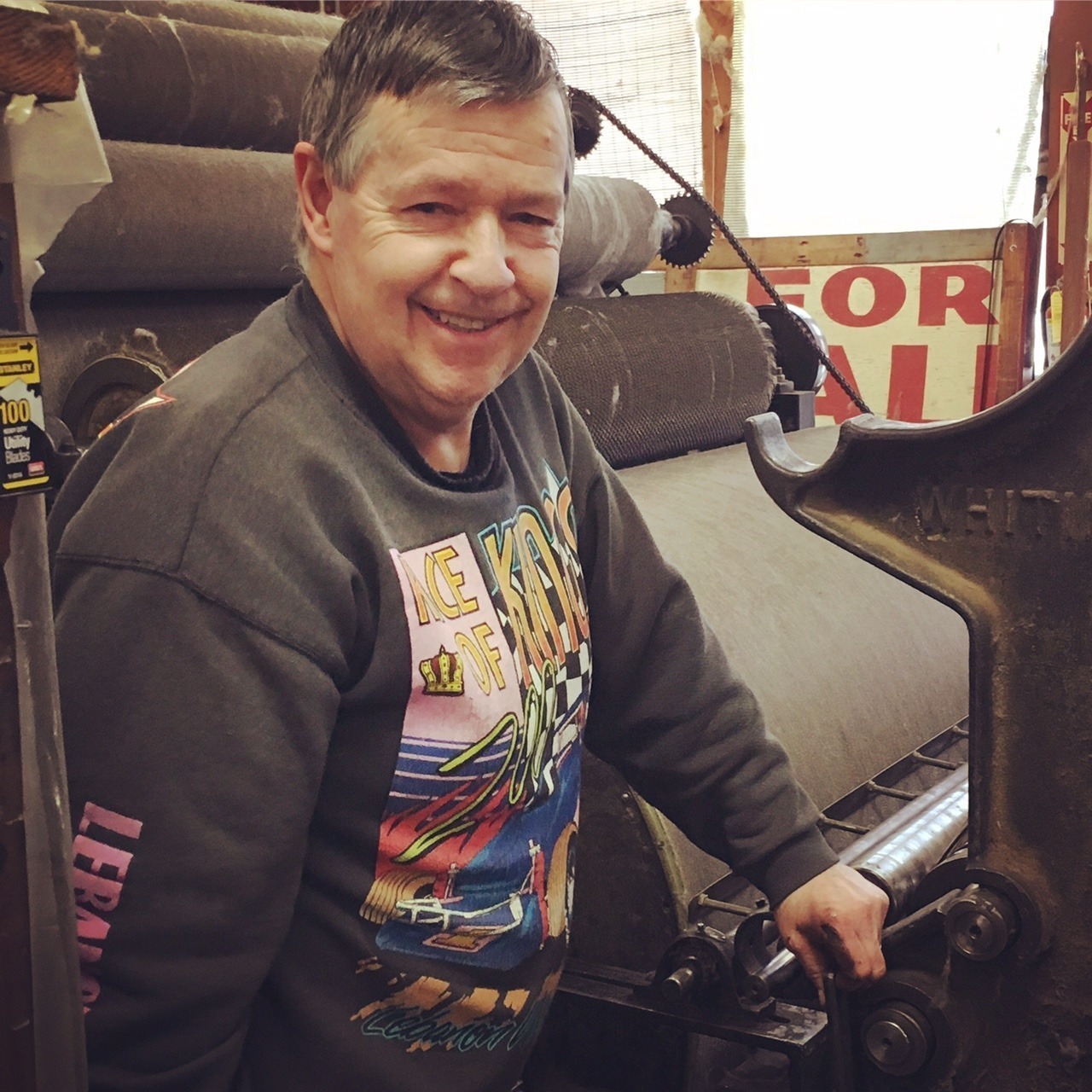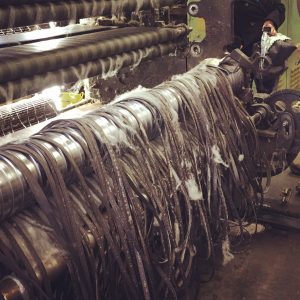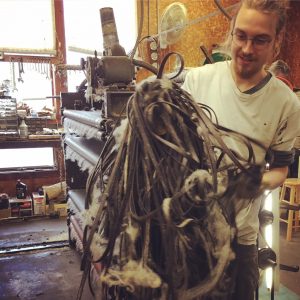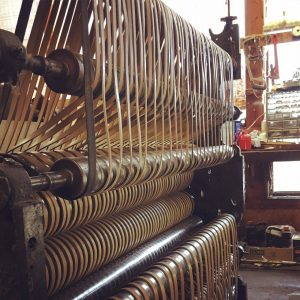We get visitors of all kinds at the Spinnery. This week we enjoyed visits from members of the Greater Boston Knitting Guild for a tour of our mill; and several fiber producers such as our friends Andrea Colyer of Greenwood Hill Farm and Bambi Freeman of Sterling Brook Farm who dropped off wool that will soon be spun into luscious skeins.
This week we also were very grateful for a visit from Rob Davis, a longtime friend of the Spinnery who has provided invaluable help over the years keeping our production line humming along nicely.

Many visitors to our mill are curious about how we keep our antique machines in running order. And we often tell them that yankee ingenuity, duct tape and baling wire have served us very well for decades. Since this machinery is no longer being manufactured, finding replacement parts can be tricky. Laurie, who runs the card, has learned over the years how to make use of parts from other machines to keep things running smoothly. Our carding machine now includes parts and belts from tractors, motorcycles and old elevators.
We process fiber in a sequence that runs from organic to non-organic and light to dark, concluding with color. We process about 250 pounds of fiber a week; and once we’ve carded approximately 2500 pounds, we pull the carding machine apart for a very thorough cleaning. This allows us to ensure that when we restart production with organic and light wool, the carding machine is as pristine as we can make it.
This week, we disassembled our carding machine for a more elaborate repair. We decided that it was time to replace the leather belts that “cut” the fine woolen network that comes off the last roll of the card into the strands that become our pencil roving. The last time we swapped out these belts was over eight years ago.


As you can see, it was a messy job; and one that took about four days to complete.

The machine is now ready to get back to business and we couldn’t have done it without the help of our friend Rob Davis. He worked for many years at D&T Spinning in Ludlow, VT where he ran eight carding frames similar to ours that produced (of all things) the woolen windings that went into baseballs. Rob knows these machines inside and out, and has regularly come out of retirement for the day to provide us with help.
We are grateful to all of the members of our little fiber community that make our jobs so lively and allow us to make such wonderful yarn. We hope that you’ll have a chance in the near future to stop on by and share in the fun.
